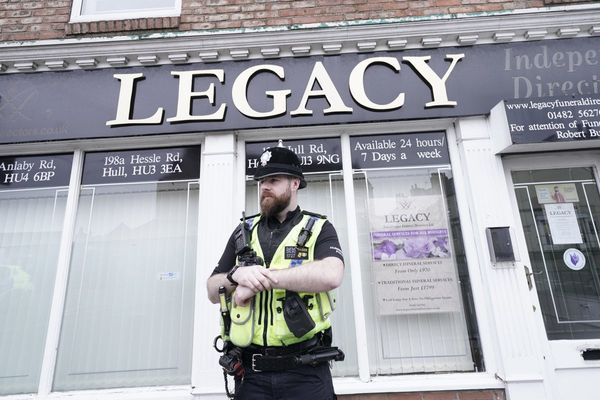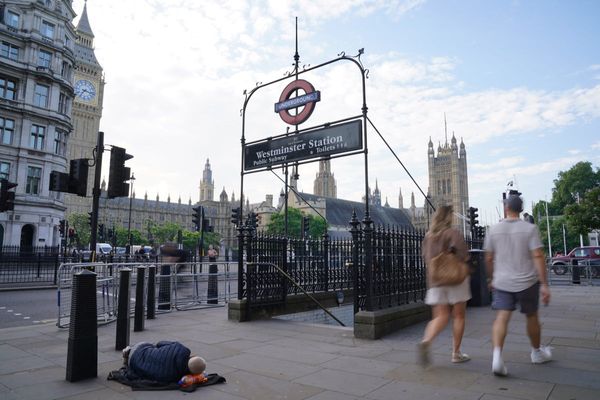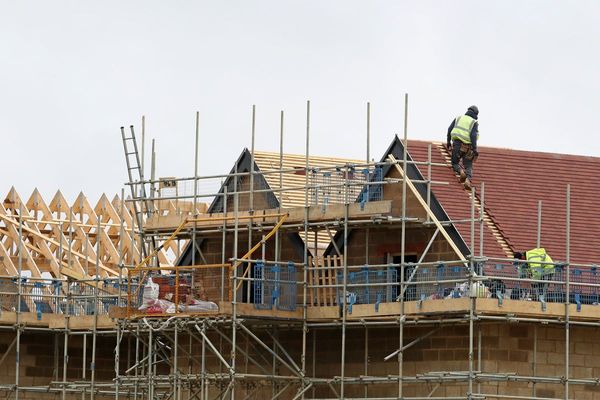
Local news organizations across the United States need to be given serious government financial help, especially in the form of tax breaks, in order to stave off a crisis in the media sector and help save US democracy, a leading advocate for local journalism has said.
Steven Waldman, co-founder of Report for America, said a new initiative, called Rebuild Local News, wanted to revitalize hundreds of local news outlets across America decimated by changes in the industry, shifts in the sector’s advertising revenue structure and more recently, the pandemic.
The Rebuild Local News coalition is pushing for a comprehensive list of tax credits to keep afloat local newsrooms, such as a tax refund for local news digital subscribers, payroll tax credits for hiring and retaining local reporters, and a tax credit for small businesses to advertise in local news outlets.
Waldman and his coalition estimate that it would bring in $3.5bn of relief to the local news economy via “philanthropy, businesses, consumers and the government”.
Rebuild Local News’s original aim was to get sweeping legislation to protect local journalism passed at the national level, but Waldman said the new Republican-majority congress makes that an unlikely reality given the party’s hostility to the mainstream media. Instead, the organization is pivoting to focus on getting legislation passed in as many states as possible.
Waldman said it was the Covid-19 pandemic that really brought into focus the urgent need for help to America’s beleaguered local news outlets whose mass closures have created “news deserts” across the US.
“I just thought this could be the apocalyptic event that wipes out local news,” Waldman said.
According to a 2022 report from Northwestern’s Medill School of Journalism, the US continues to lose newspapers “at a rate of two per week”, contributing to the growing crisis of “news deserts”, communities without dedicated news coverage. Research has shown new deserts lead to a less informed and engaged voter base. A 2018 study from the University of North Carolina found 1,800 local newspapers had shuttered in the US since 2004.
A major contributing factor to news deserts are the financial firms and hedge funds, like Alden Global Capital, buying up newspapers and slashing staff, and who have been widely accused of being more concerned about profits than journalistic integrity.
Waldman added that he was frustrated that Covid relief packages were not specifically looking at local media help, beyond helping out their corporate holding companies. “I felt, ‘OK, that’s probably a good thing.’ We probably should do that. But I also felt like, ‘Really, is that all we got? Shouldn’t we be thinking more creatively about the future of local news?’” he said.
Many US news outlets heavily rely on revenue from print and digital advertising, and that revenue continues to drop as tech giants like Google and Facebook swallow up the advertising market.
Now local news outlets in states like New York, California, Colorado and Wisconsin are now pushing for legislation to enshrine protections for their respective journalism businesses into law.
“Wisconsin is a really interesting one, because it’s a very Republican legislature. There’s a conservative Republican legislator who introduced a bill and it got support from a lot of business groups and most of the conservative leadership in the legislature. It’s a tax credit for small businesses that advertise in local newspapers. So it’s indirect – It’s actually a tax credit for small businesses, not for the media,” Waldman said.
The language for such legislation was crafted before Waldman’s public policy project. And while the words of the bill, called the Local Journalism Sustainability Act, weren’t his, like any good editor, he and his team swiftly adopted it.
“[A bill] actually existed already, that a local newspaper chain guy in Arizona, came up with. He called his local congresswoman, Anne Kirkpatrick, and they put together a bill. And it didn’t really go anywhere. But when we were looking around back on the record, and we scoured the landscape for all the different public policy ideas, we saw this bill at the bottom of the pile that seemed much better than all the other approaches. So we swarmed it, lifted it up, proofed it and then the whole coalition got behind this idea.”
It has been a success on the state level, in terms of getting support.
“Now there’s 20 different bills in at least a dozen states, taking little bits and pieces of this [bill].
“At the end of the day, community journalism won’t survive unless the community supports it in some way. And we used to think of that as meaning, the car dealer would have ties [through advertising] and now if we can’t rely on that, it has to be community-supported in the sense of subscribing, donating or getting the government to subsidize it.
“This is so important to the health of communities and democracy.”







